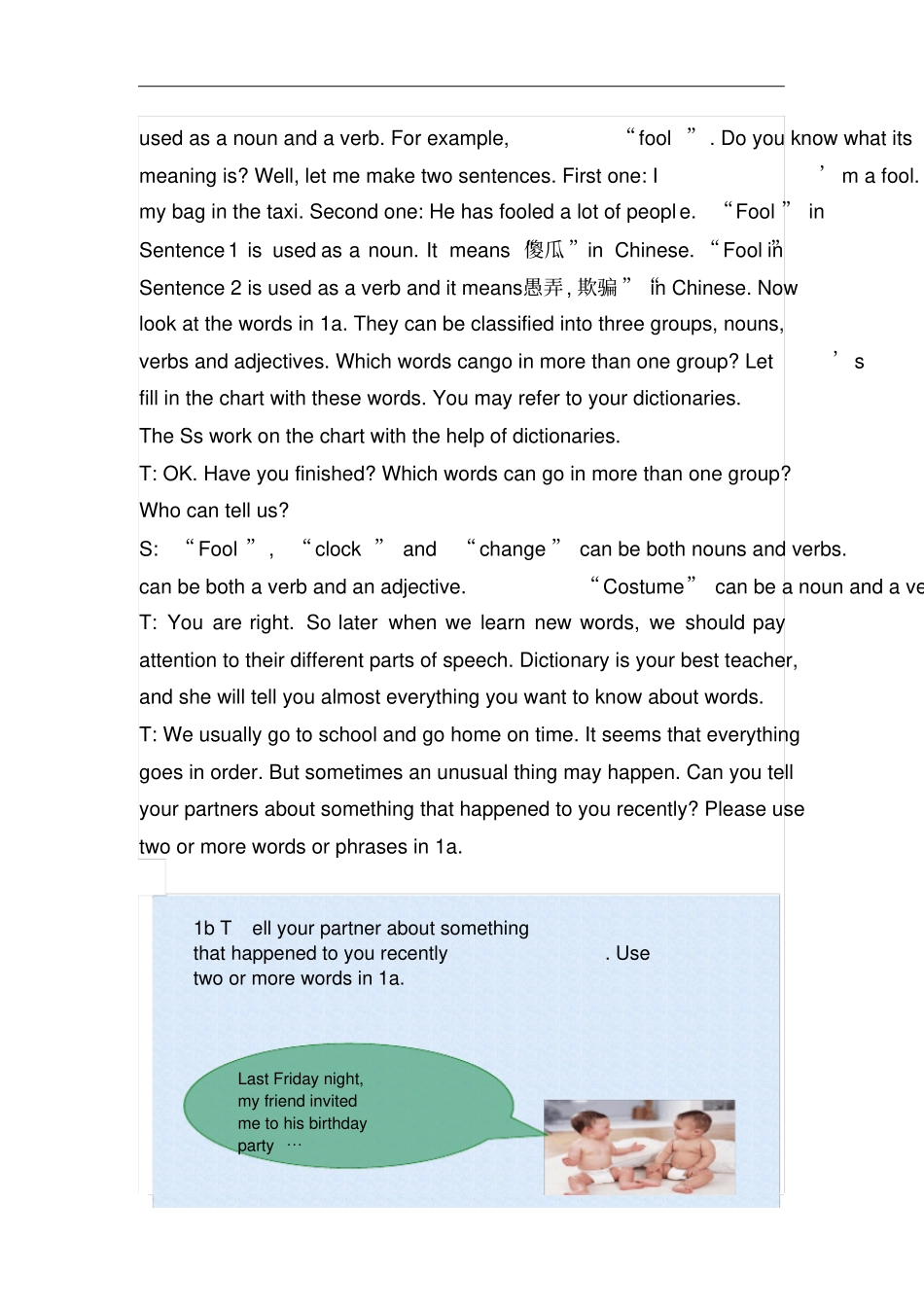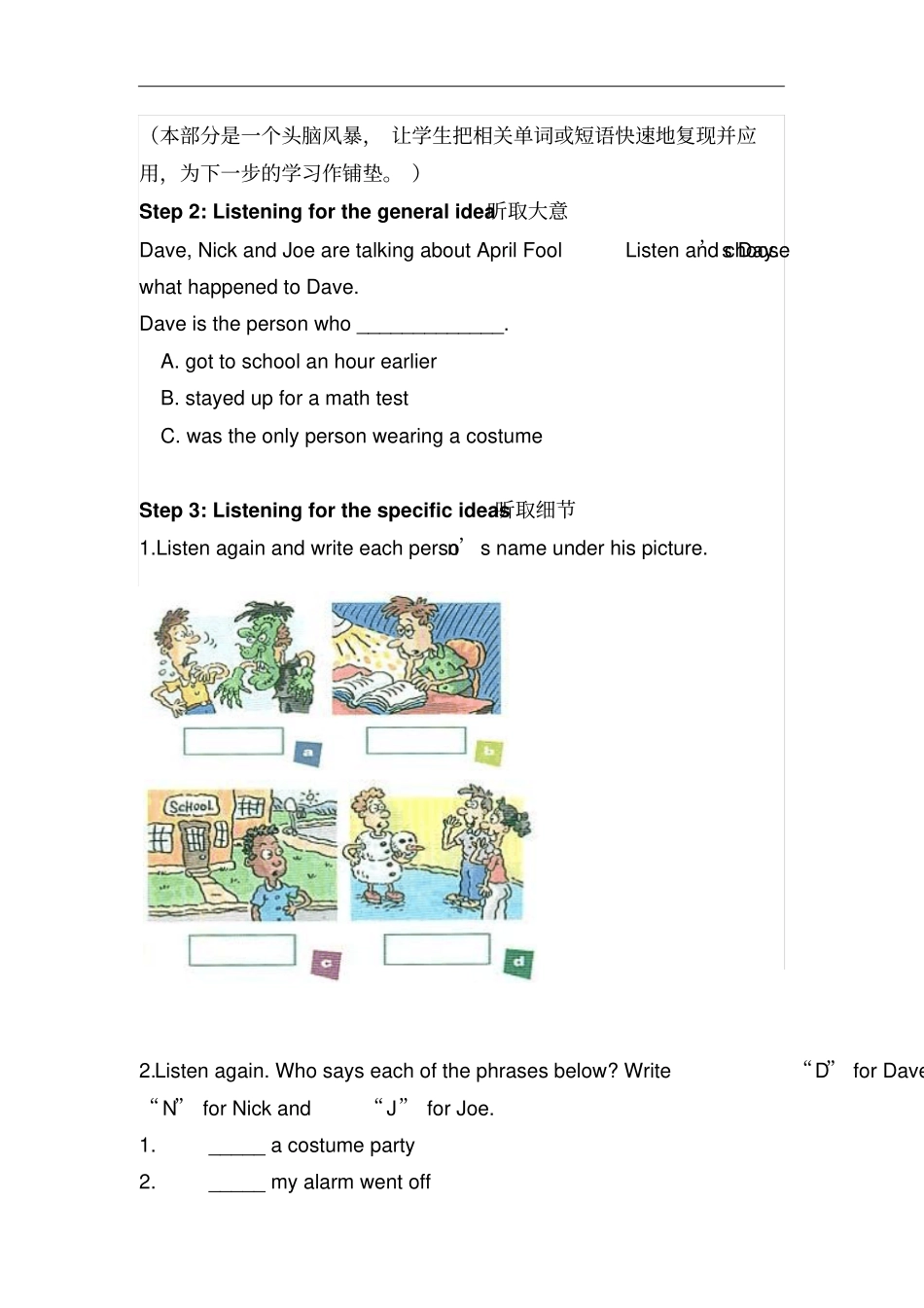学校: 滕西中学年级: 九年级Unit 12 Life is full of the unexpected. Section B (1a-1e) Learning Goals 1. 语言知识目标:1) 能掌握以下单词: fool, costume, embarrassed, costume party, 2) 提高学生的听力技能。培养学生从所听到的对话中获取信息的能力。2. 情感态度价值观目标:1)了解部分西方节日的文化常识。2)了解不及时做某事而造成的危害,培养学生养成良好的行为习惯。(目标引领,表述了本节课的知识、能力和情感目标。)Preview: 通过检查预习,了解学生的学习准备情况。Put the following into English orally, then write them down without looking at the textbook. 1. 发出声响 __________ 2. 起床 __________ 3. 穿衣服 ________ 4. 出席;露面 _____________ 5. 熬夜___________ 6. 愚人节这天戴维发生了什么事? ___________________________________________ 7. 当我到那时,我发现他愚弄了我。 ___________________________________________ Step 1:Warming up and leading in热身导入T: As we know, there are different parts of speech in English such as nouns, verbs, adverbs and so on. Sometimes the same word can be both used as a noun and a verb. For example, “fool ”. Do you know what its meaning is? Well, let me make two sentences. First one: I’m a fool. I left my bag in the taxi. Second one: He has fooled a lot of peopl e. “Fool ” in Sentence 1 is used as a noun. It means “傻瓜 ” in Chinese. “Fool ” in Sentence 2 is used as a verb and it means “愚弄, 欺骗 ” in Chinese. Now look at the words in 1a. They can be classified into three groups, nouns, verbs and adjectives. Which words can go in more than one group? Let’s fill in the chart with these words. You may refer to your dictionaries. The Ss work on the chart with the help of dictionaries. T: OK. Have you finished? Which words can go in more than one group? Who can tell us? S: “Fool ”, “clock ” an...


